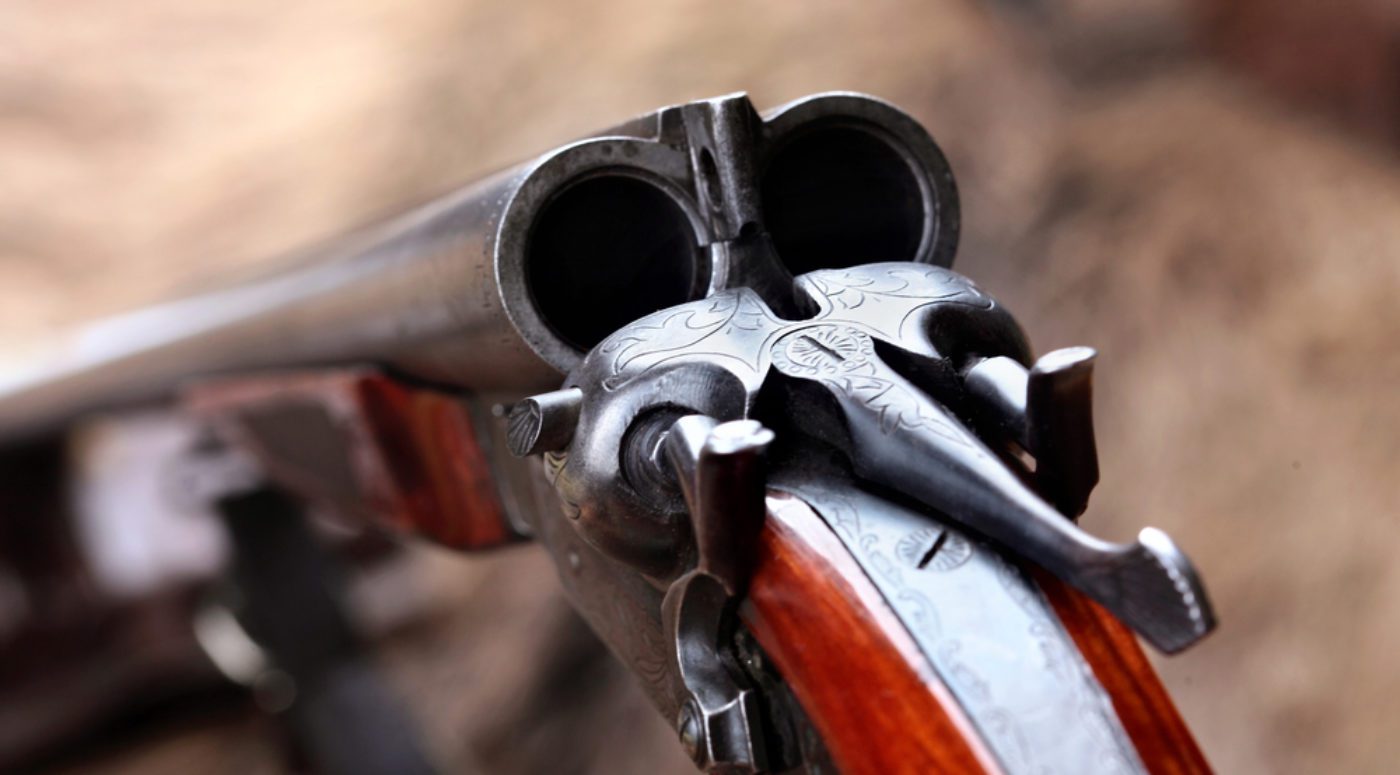

If you find yourself arrested or charged with a firearms offence, seeking guidance from a solicitor at the earliest opportunity can significantly improve your situation. This article will guide you through common concerns, such as whether you need a solicitor, what potential defences are available, and the likelihood of being granted bail. By understanding these aspects, you can better navigate the legal process and ensure your rights are protected.
Do I need a solicitor for firearms offences?
The simple answer is: yes, having a qualified criminal defence solicitor is crucial when dealing with firearms offences. Here’s why:
Firstly, the law surrounding firearms in England is strict and detailed. There are myriad offences ranging from the illegal possession of a firearm to using one in a criminal act. The penalties associated with these offences can include significant prison sentences. A solicitor will help you navigate these complexities and ensure that you understand the charges against you, as well as any legal defences that might apply.
When you’re accused of a firearms offence, a solicitor’s expertise is vital in examining the evidence presented against you. They can identify any weaknesses or inconsistencies in the prosecution’s case and use these to your advantage. Solicitors are also adept at engaging in negotiations with prosecutors, which could potentially lead to reduced charges or even the dismissal of your case in certain circumstances.
Moreover, solicitors are skilled in court procedures and can effectively represent you during trial if your case proceeds to that stage. They understand legal processes such as submitting evidence, cross-examining witnesses, and presenting your defence clearly and persuasively to the court. Having a solicitor by your side ensures that your rights are protected throughout the legal proceedings.
What are possible defences for firearms offences?
One possible defence is the lack of possession. To secure a conviction for a firearms offence, the prosecution must prove beyond reasonable doubt that you were in possession of the firearm. Possession requires both physical control and an intention to possess the weapon. If you can demonstrate that you did not have knowledge or control over the firearm, this could serve as a crucial defence.
Another potential defence is a certificate or authorisation defence, where you were in lawful possession of the firearm due to holding a legitimate firearms certificate or other legal authorisation. This necessitates showing that at the time of the alleged offence, the necessary documentation was valid and applicable.
In some cases, a defence of necessity or duress might be applicable. This involves demonstrating that you were compelled to possess or use the firearm to prevent a greater harm, such as an immediate threat to your life or safety. That said, establishing this defence can be complex as it usually demands proof that the threat was imminent and that there were no reasonable legal alternatives.
Errors in procedure or evidence collection can also provide a viable defence. This includes demonstrating that your rights were violated during the arrest process or if there was a failure to follow correct protocol when collecting or handling evidence. Such errors can sometimes result in evidence being deemed inadmissible, which may weaken the prosecution’s case significantly.
Finally, mistaken identity can serve as a defence if there is a question about whether you were accurately identified as the individual in possession of the firearm.
Will I get bail for firearms offences?
Several factors are considered by the court when deciding if bail is appropriate:
- Nature and seriousness of the offence: Firearms offences are generally viewed with great seriousness due to the potential threat to public safety. The gravity of the offence will heavily influence the court’s decision.
- Previous criminal record: If you have prior convictions, especially for similar offences, the court might be less inclined to grant bail due to concerns about reoffending.
- Ties to the community: Strong ties, such as family connections, employment, or long-term residence, may work in your favour, suggesting you are less likely to abscond.
- Risk of failing to attend court: The court assesses whether there is a significant risk that you might not attend future hearings. Previous instances of failing to appear can negatively impact your chances of being granted bail.
- Risk to public safety: If there is any indication that releasing you on bail might pose a danger to others, the court is likely to deny bail.
- Interference with witnesses or investigation: Concerns that you might interfere with witnesses or the ongoing investigation can result in a denial of bail.
Will I have to go to court if I’m arrested or charged for firearms offences?
Firearms offences in England may range from relatively minor infractions, such as possessing an air gun without proper supervision, to severe charges like possession of a firearm with intent to endanger life. The seriousness of the charge often dictates the legal process, including court proceedings. Typically, firearms offences can be classified into summary offences and indictable offences:
- Summary offences are less severe and are usually handled in a Magistrates’ Court. These may not always require a court appearance, especially if the case can be resolved through other means, such as a caution or a plea deal.
- Indictable offences are more serious and are typically heard in the Crown Court. This will almost always involve court appearances, where the accused must be present to address the charges and any potential trial.
In some cases, there may be an initial appearance in a Magistrates’ Court even if the offence will eventually be tried in the Crown Court. During these hearings, the magistrates may decide issues such as bail and legal representation while the case is prepared for trial.
Will I go to jail if found guilty of firearms offences?
Firearms offences in the UK are governed by the Firearms Act 1968 and subsequent amendments, which outline various offences and their corresponding penalties. The range of firearm offences is broad, from illegal possession of a firearm to more serious charges like using a firearm in the commission of a crime. The sentencing for firearms offences can include significant custodial sentences, reflecting the gravity with which the courts view these matters.
In cases of illegal possession, the law typically mandates a minimum sentence. For example, possessing a prohibited firearm, such as a handgun, typically carries a minimum sentence of five years in prison for adults. For those under 18 years old, the minimum is three years. However, the court may impose a lesser sentence if it finds that there are exceptional circumstances that justify a departure from the minimum term.
For more serious offences, such as using a firearm to threaten or harm another person, sentences can be much more severe.
Will I go to jail if it’s my first offence of firearms offences?
The likelihood of a first-time offender going to jail for a firearms offence in England depends on the specific circumstances of the case, the type of offence, and the nature of the firearm involved. Many firearms offences, such as possession of a prohibited weapon or possession of a firearm with intent to endanger life, carry mandatory minimum sentences. For example, possession of a prohibited firearm, such as a handgun, typically results in a minimum sentence of 5 years in custody for adults, even for first-time offenders. That said, the court does have discretion to impose a lesser sentence in exceptional circumstances, such as if the offender can demonstrate strong mitigating factors.
Can I get Legal Aid for firearms offences?
In England and Wales, Legal Aid is available to ensure fair access to justice and can potentially cover the costs of your defence. Whether you can receive Legal Aid largely depends on two main factors: the ‘interest of justice’ test and a financial means assessment.
The ‘interest of justice’ test considers the seriousness of the charge and whether a conviction could lead to imprisonment. Given the severe penalties associated with firearms offences, you are likely to meet this criterion. The complexity of your case can also influence this aspect. If dealing with unfamiliar legal procedures, having legal representation enhances your chances of a fair trial, which can qualify you for Legal Aid.
The financial means assessment evaluates your ability to pay for legal services. This means test examines your income, family circumstances, and assets. If you receive certain benefits, you may automatically qualify. The threshold for eligibility varies.
Where to get more help
Obtaining the advice of a skilled criminal defence solicitor with proven experience in firearms offences will make a significant difference in the outcome of your case. If you or someone you care about is facing criminal charges and you need the assistance of such a solicitor, get in touch with the team at Stuart Miller Solicitors today.
OUR COMMITMENTS TO YOU:
-
Responsive
A legal expert will consult you within 24 hours of making an enquiry.
-
Empathetic
We will always treat you with trust, understanding and respect.
-
Specialised
Your case will be handled by an expert who specialises in your type of offence.
-
Proactive
We will take early action to end proceedings as soon as it is practically and legally possible to do so.
-
Engaged
You will be kept updated on your case at all times. We will provide a named contact available to answer your questions.
-
Caring
We understand this is a difficult and stressful time for you and your family. Our team will support you every step of the way.
-
Tenacious
We will never give up on your case. We fight tirelessly to get you the best possible outcome.

